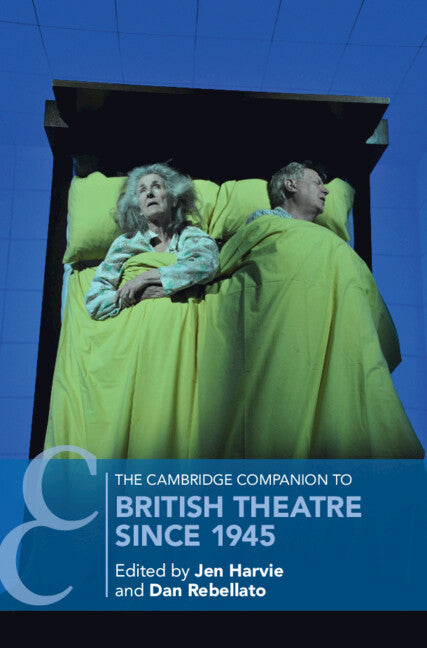The Cambridge Companion to British Theatre since 1945
Author(s): Edited by Jen Harvie, Dan Rebellato
Couldn't load pickup availability
🚚 Please note we can only ship within the UK.
FREE delivery on books (excluding sale).
Delivery for other items is £1.50 - £4.50, calculated at checkout.
T&Cs apply.
Free click & collect on all orders.
British theatre underwent a vast transformation and expansion in the decades after World War II. This Companion explores the historical, political, and social contexts and conditions that not only allowed it to expand but, crucially, shaped it. Resisting a critical tendency to focus on plays alone, the collection expands understanding of British theatre by illuminating contexts such as funding, unionisation, devolution, immigration, and changes to legislation. Divided into four parts, it guides readers through changing attitudes to theatre-making (acting, directing, writing), theatre sectors (West End, subsidised, Fringe), theatre communities (audiences, Black theatre, queer theatre), and theatre's relationship to the state (government, infrastructure, nationhood). Supplemented by a valuable Chronology and Guide to Further Reading, it presents up-to-date approaches informed by critical race theory, queer studies, audience studies, and archival research to demonstrate important new ways of conceptualising post-war British theatre's history, practices and potential futures.
- Explores diverse theatre makers, theatre sectors, and theatre communities, including Black and queer theatre, and examines theatre's relationship to the state
- Renders the conditions and contexts of British theatre production accessible and comprehensible, providing both rich detail and broad coverage across a range of important, complementary areas
- Up-to-date and reflective of recent critical turns, including the move to decolonise higher education, to decentralise British theatre studies, to address longstanding biases of gender and sexuality, and to expand audience studies
Share


